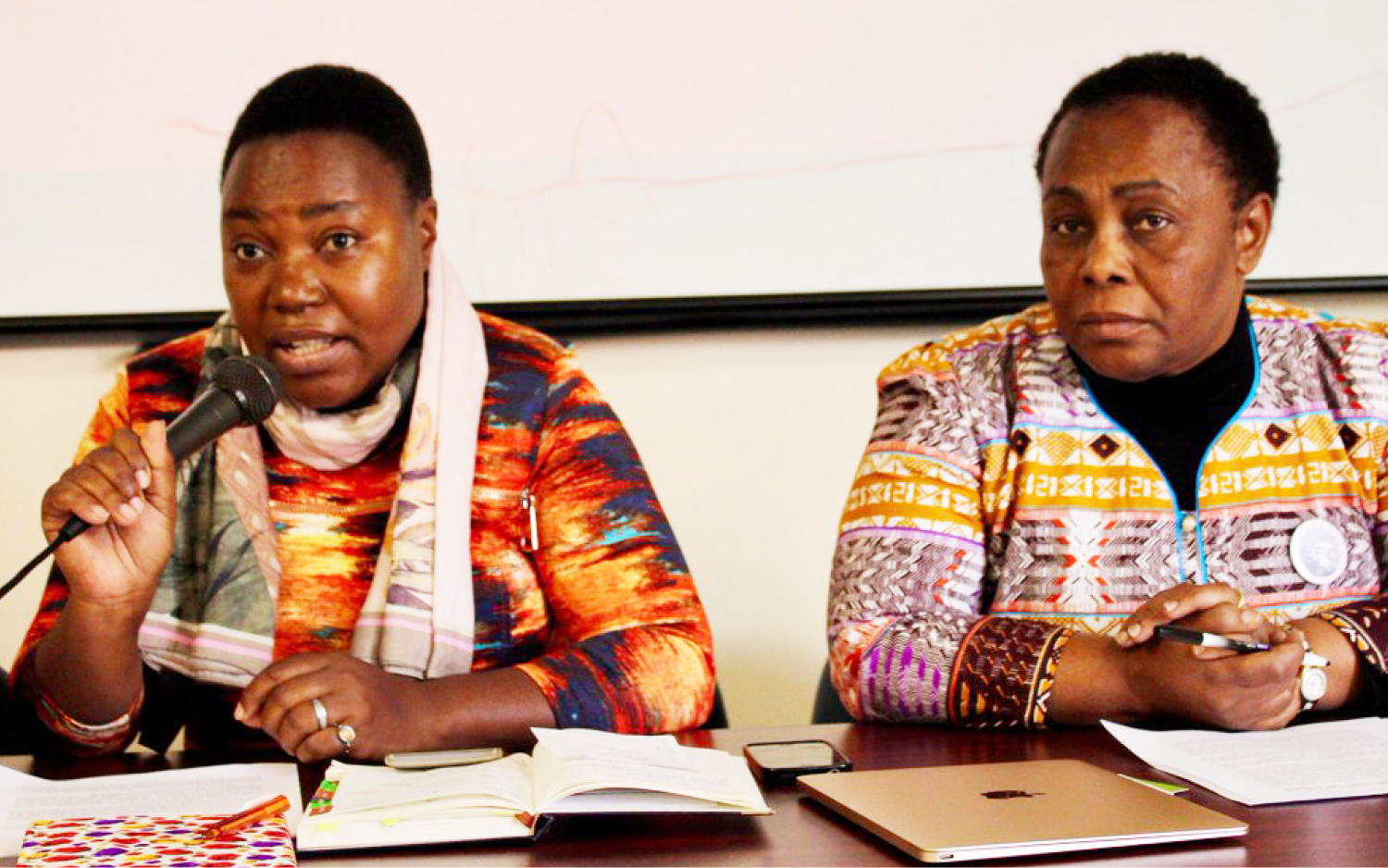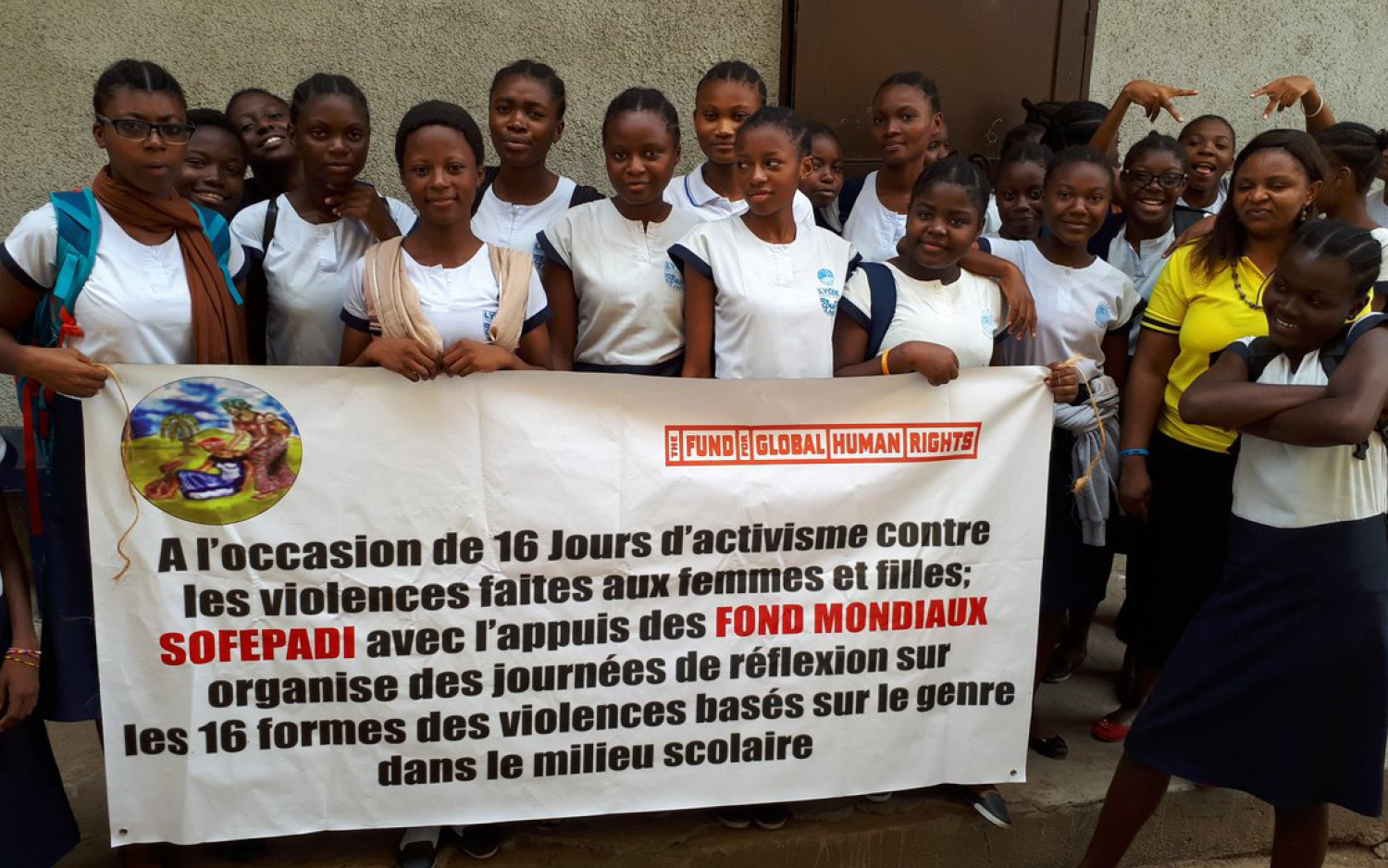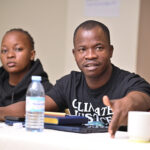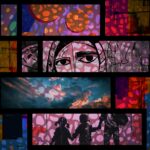This article was published more than 7 years ago.

“Ensuring justice is essential for survivors and society as a whole. Some cases are never brought to justice because of a lack or of a mismanagement of evidence. Reparations are also hard to secure because of high levels of poverty.”
– Mambo Zawadi, Executive Director of SOFEPADI
Victoria* was 17 years old when Mambo Zawadi arrived at her school in eastern Democratic Republic of Congo (DRC). As the Executive Director of Female Solidarity for Integrated Peace and Development (SOFEPADI), Zawadi spoke to Victoria’s class about reproductive health and strategies for preventing sexual violence.
For Victoria, the discussion elicited feelings of incredible shame and anger. She had been raped by her uncle not long before the training, and when she turned to her family for help, no one had believed her. Voiceless and hurt, Victoria internalized the pain of her ordeal. Then, long-time Fund grantee SOFEPADI showed up.
Surrounded by her peers, Victoria kept quiet as Zawadi spoke. A few days later, she summoned the courage to visit one of SOFEPADI’s support centers to learn more about their services. Within a week, she felt strong enough to confide what had happened to her to Zawadi—and to finally get the support she needed to go from victim to survivor.
Sexual violence in the DRC
Stories like Victoria’s are all too familiar for Zawadi and her colleagues, including SOFEPADI co-founder Julienne Lusenge. Horrified by the level of sexual and gender-based violence (SGBV) that accompanied the return of civil war in the DRC in 1997, Julienne and 22 fellow activists established SOFEPADI in 2000. They created the organization to get the issue of SGBV on the agenda of international groups operating in the region, including the United Nations, and to help survivors recover from their trauma and pursue justice for the crimes against them. Eighteen years later, their work is as critical as ever.
Despite multiple peace agreements, the fighting between armed groups in eastern DRC has continued to ebb and flow. Fighting has been particularly intense in the provinces of Ituri and North Kivu—where SOFEPADI is headquartered and conducts most of its work. Women and children have borne the brunt of the ongoing conflict, constituting about 36% of the killings since October 2014.
Zawadi and Julienne have repeatedly emphasized the disproportionate toll of the violence in DRC on women and children. “The women of Beni in North Kivu, where I am from, are being assassinated, massacred, slaughtered, disemboweled. They suffer rape, sexual violence, abduction and sexual slavery […] I hope that today is the day we end this cycle of violence,” said Julienne during the NGO Working Group on Women, Peace, and Security’s annual meeting at the United Nations.
SOFEPADI’s three-pronged strategy to combat sexual violence
While Julienne calls for action at the international level, Zawadi and her SOFEPADI staff on the ground support women on the frontlines of the DRC crisis. Their three-pronged strategy to combat sexual violence involves direct service provision, prevention activities, and national and international advocacy.

Direct services are at the heart of SOFEPADI’s work. Through their hospital in Bunia, Ituri Province, they offer comprehensive medical and psychosocial support to survivors of rape and sexual assault. They also provide economic and legal support through their sub-offices and community outreach programs. Finally, they pay the school fees of children who survived sexual assault or were born of rape. The latter plays a key role in fighting stigma against rape survivors and helps safeguard the futures of young people who might otherwise slip through the education system’s cracks.
Recognizing that gender-based violence is a product of larger societal factors—including the ongoing armed conflict, gender inequality, and a lack of access to educational, legal, and protective services—SOFEPADI also conducts community-level outreach and education. By sensitizing people to women and girl’s rights, they aim to prevent and reduce rates of gender-based violence, and to clear a path for women’s involvement in the community more broadly.
Finally, Zawadi and her team mentor and train women to become involved in civic life and local politics, and advocate with local, national, and international actors to promote and defend laws and policies that protect women and girls. Their vision is of a world where women and girls in the DRC have the same opportunities and rights as men and boys.
Bringing perpetrators to justice and empowering victims to become survivors
Zawadi and SOFEPADI’s incredible work has changed the lives of countless Congolese women and girls. For Victoria, coming forward opened the doors to desperately needed legal, medical, and psychological services. After months of feeling alone, she was welcomed into a family at SOFEPADI, which paid for her education. She then went on to obtain her high school degree and attend university, and her uncle was eventually brought to justice. Found guilty on charges of sexual violence, he was sentenced to 12 years in prison. The case against him was one of 240 that SOFEPADI closed last year, 96 of which resulted in convictions.
Over the years, SOFEPADI has also successfully held the Congolese military—an armed force that too often enjoys impunity—to account. Working with the UN mission in DRC (MONUSCO) as well as Lawyers Without Borders (Avocats Sans Frontières), the organization was instrumental in prosecuting 13 military police officers for sexual and gender-based violence against girls ranging from nine to 16-years-old. When the military tribunal in Beni delayed the trial for over a year citing a lack of space, SOFEPADI responded by constructing a tent in which to hold the trial. Their tenacity resulted in the convicted officers receiving prison sentences ranging from five to 20 years and being forced to pay compensation fines to their victims.
This success story is just one of many SOFEPADI has realized over the years—and just one of many reasons the Fund is so proud to support them.
*Name has been changed to protect the identity of the survivor.


